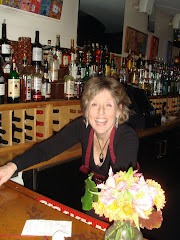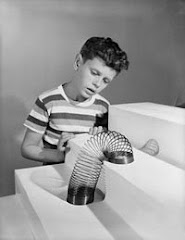 I met Judy Brauner after my husband, Bob, suddenly passed away. I never thought I would ever need a “shrink’s” counsel, let alone have to deal with bereavement. Although Judy’s article may be difficult and sad to read, it is a part of life and, I, for one, found her support immeasurably, albeit surprisingly, helpful. As you may be able to see, I was not a willing member of this group. I was angry, argumentative and thought those around me who “shared” were lame. Bob and I didn’t even know these people – why would I possibly want to share my most traumatic experience with this collection of depressed strangers? I goaded Judy, but she, thank goodness, is thick-skinned and just allowed me to vent. Then, she moved on to the next group member.
I met Judy Brauner after my husband, Bob, suddenly passed away. I never thought I would ever need a “shrink’s” counsel, let alone have to deal with bereavement. Although Judy’s article may be difficult and sad to read, it is a part of life and, I, for one, found her support immeasurably, albeit surprisingly, helpful. As you may be able to see, I was not a willing member of this group. I was angry, argumentative and thought those around me who “shared” were lame. Bob and I didn’t even know these people – why would I possibly want to share my most traumatic experience with this collection of depressed strangers? I goaded Judy, but she, thank goodness, is thick-skinned and just allowed me to vent. Then, she moved on to the next group member. What Judy doesn’t say is that, despite how much I didn’t want this process to succeed, unconsciously, of course, I did meet my two very best friends, Renee and Gilda. I can’t imagine getting to this point without them. We made certain promises that we were not going to martyr our husbands but to love and remember them as they were, including the annoyances, frustrations and, most especially, their humor. Many, many evenings we’d sit with a bottle of wine in a restaurant or at our homes and laugh until tears came. How wonderful to be able to laugh with people who truly understand.
Be it a long expected, grueling and painful road of pain and illness shared with a beloved spouse, or an accident, suicide or sudden death of any kind, the separation by death from a beloved spouse puts one into an unexplored and frightening landscape. The finality of knowing you will never again be in the physical presence of one with whom you shared trust, intimacy, love, anger, children, and all of their trials, turmoil, triumphs and milestones is overwhelming. Not only is one losing so very much of the way they identify themselves in this world, they are losing a partnership which gave them a sense of importance, of having that special relationship where one matters most.
So...... people ask me, "how do I go on from here? Where do I begin? Why should I care? My life will never be the same. That is where I first met our Elaine, a bright lovely high functioning gal to whom I suggested the possibility of Bereavement Group. I told her that the beginning is rough, but, if you can stick it out for the first two very difficult sessions, what one is able to find, if open to the possibility of it, is connection with people who understand, as no one who has not been down this painful road ever can, exactly what you are going through. Also, who has the best advice of who to call when your furnace breaks down in the middle of the night, who to help with the overwhelming amount of paperwork that arises after an event like death occurs? The compatriots in this group will be there for you in a way that often friends find tiring after awhile. Bonds and friendships are formed within this group, (one which no one would ever choose to join) that is supportive and long lasting. The sense that you too, although in the midst of grief, can be of help to others just by being there and sharing your story, is very empowering.
When the death of a spouse occurs and the sorrow is great and overwhelming, it is a comfort to know that you have a place to vent your sorrows and never feel that you have said the same thing again and again and that people will tire of listening. You are, that one time a week, when the group meets, at last in a safe environment where you are burdening no one with your sorrows. Group members are only open and willing to give all the attention and support needed and know that they will receive the same in return from you. People report that week-ends are so very hard, yet here you have a list of phone numbers to call to spend a Saturday night with or grab a cup of coffee and not be alone and also not feel that you are a third wheel to your married friends who might warmly include you for dinner.
Death of a spouse is, without a doubt, one of the most difficult adjustments in life that we humans, under ordinary circumstances, will ever have to make. How does one reconfigure one’s life? How does one move forward without feeling that we are being disloyal? A bereavement group offers a perspective on dealing with the unthinkable that very few other venues offer.
Sharing memories, beautiful, wonderful ones, enrich us and keep us connected to those who enriched our lives by sharing themselves with us. They will remain forever even though the actual past itself cannot. One’s life with our spouse helps define who and what we were. Treasuring those memories and being able to share those helps us establish new relationships and continue living our life in strong and meaningful ways.
People know they are ready to move on when the intense pain is diminished and one looks forward to the future with a renewed and enthusiastic desire to live life joyfully in a new chapter with new friends, new hopes and new plans for the future.













It is amazing when you are around others who have been through similar life journeys how great the connection can be. I feel that way talking to others who have lost their partners and also for those who have been long term Caregivers. All these experiences give us the choices to retreat or seek out others for sharing, support and easing the transition.
ReplyDelete